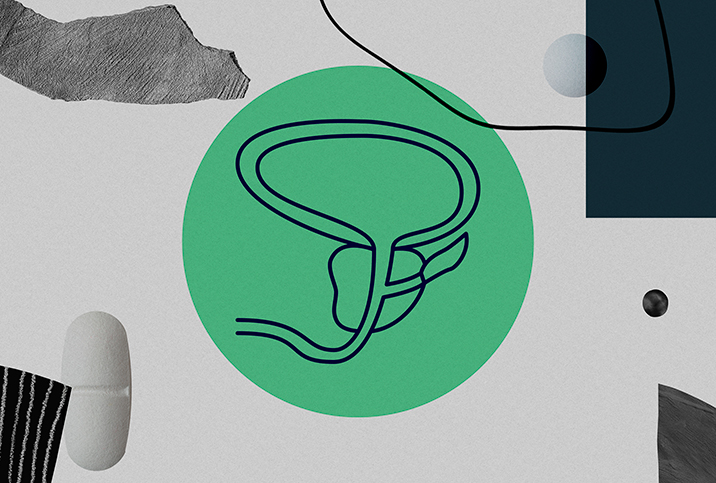Alpha Blockers Are First Line of Defense Against an Enlarged Prostate

As men age, they experience prostate enlargement, which often leads to a condition known as benign prostatic hyperplasia (BPH). While the symptoms can make men feel uneasy, BPH is relatively harmless.
The prostate gland wraps around the urethra, so its enlargement can place pressure on the urinary system, making some guys feel as if they're not emptying their bladder fully and causing others to experience inconsistent urination, said Michael Richardson, M.D., a family medicine physician with Boston-based One Medical.
What's a guy to do? In the vast majority of cases, the first step for a doctor is to prescribe an alpha blocker.
"It is the first line of treatment because it's effective and fairly cheap," Richardson said.
Treating BPH at the source
Alpha blockers do as their name suggests: They block alpha-one receptors that control muscle movements and contractions. There are broad alpha blockers that target the entire body, and there are those that specifically target the smooth muscles of the prostate. The general idea is if the prostate can calm down and contract less, this will ease both the pressure on the urethra and some of the ongoing urinary symptoms.
While alpha blockers are meant to tackle the BPH issue, they may help calm the bladder, which can ease urinary issues even more, Richardson said. He added that alpha blockers may also help patients pass kidney stones more quickly because they cause the bladder muscles to relax.
The most common BPH-specific alpha blocker prescription is tamsulosin (Flomax). Other common options include alfuzosin (Uroxatral) and doxazosin (Cardura).
Minimal side effects, few cross-reaction concerns
Medical professionals like to start with alpha blockers because they carry relatively minimal side effects.
"It's pretty harmless to start the alpha blocker by itself, as it's generally well-tolerated," said Hanson Zhao, M.D., a Cleveland Clinic urology fellow.
Alpha blockers can lower blood pressure, and the most common side effects are weakness or dizziness, which are more prevalent in patients with existing blood pressure issues. Zhao said alpha blockers often are not prescribed if a patient is also taking medication for erectile dysfunction (ED), because the combination can create dangerous drops in blood pressure.
The prostate controls much of the ejaculation function, and alpha blockers can also cause retrograde ejaculation, he added. Essentially, a man taking alpha blockers could experience weaker ejaculation during intercourse and/or a reduced amount of ejaculate, because some semen enters the bladder instead of exiting during orgasm.
This generally isn't anything to worry about, Zhao said, but an alpha blocker may not be the best option for men who are trying to have children. They may instead want to opt for a 5-alpha reductase inhibitor, which includes finasteride and dutasteride.
He added that doctors also do additional testing to ensure a patient's enlarged prostate isn't a sign of something more serious. Blood, urine and prostate-specific antigen (PSA) tests, as well as a digital rectal exam (DRE), offer clues about whether more investigation is needed or the man is simply facing the common issue of prostate enlargement.


















